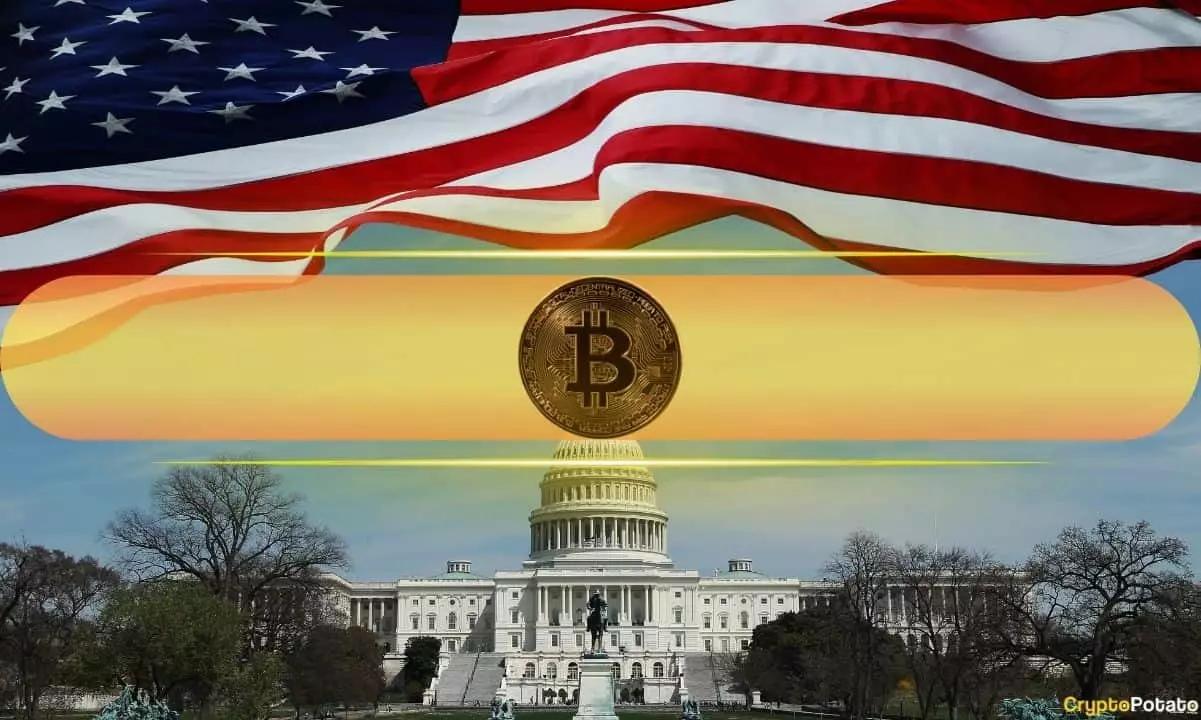The recent revelations from Bo Hines, the Executive Director of the President’s Council of Advisers on Digital Assets, about the Trump administration’s ambitions to establish a U.S. Bitcoin Reserve are both exciting and troubling. The idea of utilizing unconventional government revenue sources, such as tariffs and altered gold valuations, represents a bold departure from traditional fiscal management. Hines’ comments during a White House interview with investor Anthony Pompliano indicate a startling readiness to leverage alternative mechanisms for national Bitcoin investments.
The core of this initiative aims to create a Bitcoin Reserve without unnecessarily reshuffling current government assets or tax revenues. This approach could provide a window of opportunity for innovative economic maneuvers, yet it raises essential questions about fiscal responsibility and long-term economic implications. Is it prudent to instigate such creative funding strategies without considering their potential risks?
The Creative Financial Maneuvering
Hines emphasized that there are “countless ways” to fund Bitcoin acquisitions outside the usual budgetary constraints. The notion of generating revenue from tariffs to support a digital asset agenda has a certain allure, but it also risks complicating trade relationships. Opening the door to unconventional funding jeopardizes the traditional reliability of national revenue streams; the government must tread cautiously, balancing innovation with diplomacy.
Moreover, the prospect of revaluing gold certificates held by the U.S. Treasury speaks volumes about an administration willing to reinterpret what constitutes valuable assets. Proposed figures suggest soaring valuations—moving from a historical $43 an ounce to the staggering market price of around $3,200—will likely challenge existing monetary norms. While revaluing such certificates could, at least on paper, yield a surplus for Bitcoin purchases, there are undeniable risks tied to inflating asset values. The integrity of our monetary system relies on stable valuations; inflating asset worth to facilitate investments in a volatile market may put our economic positioning into jeopardy.
Legislative Challenges Ahead
The ambitious Bitcoin Act of 2025 led by Senator Cynthia Lummis demonstrates a legislative push aligned with these initiatives, calling for essential collaboration between various federal agencies such as the Department of Commerce and the Treasury. However, the project’s success is contingent on Congressional approval. The need for a unified front within the legislature poses a significant challenge, as cryptocurrency can often ignite polarized opinions among lawmakers, risking the fragmentation of any coherent policy.
Although Hines appears optimistic about the administration’s willingness to explore all avenues for accumulating Bitcoin, one must remain wary of the bureaucratic ties that often stifle rapid policy implementation. The intention to rally multiple government departments toward a common goal is commendable, yet the reality of inter-agency coordination is often fraught with inefficiencies and red tape.
Bitcoin as a National Priority
Hines’ vision of transforming America into the “crypto capital of the world” resonates with forward-thinking libertarians and fiscal conservatives alike. His arguments outline blockchain and digital assets as keystones for modernizing the financial landscape, particularly amid the frustrations many Americans face with traditional banking systems characterized by hidden fees and slow processing times.
However, the question is: at what cost will this modernization come? While improved transparency and efficiency are undoubtedly appealing, the government’s engagement in cryptocurrency markets naturally invites scrutiny regarding consumer protections and regulatory frameworks. The competing interests of innovation, investor safety, and financial accountability must be delicately balanced.
There is a looming threat that, in the race to establish dominance in the crypto landscape, the administration might overlook essential caution. With Bitcoin notoriously volatile, politicians must navigate a treacherous terrain where enthusiastic investments may lead to catastrophic losses for taxpayers in the long run.
Final Thoughts on a Bitcoin Reserve
As the administration forges ahead with ambitious measures to underpin a U.S. Bitcoin Reserve, it exemplifies a broader desire to shift from traditional economic paradigms toward uncharted territories. Yet, the risks of such bold maneuvers shouldn’t be underestimated. The dynamic nature of cryptocurrency presents attractive opportunities, but it also demands prudent governance and robust oversight. As the public discourse evolves, maintaining a center-right perspective that embraces innovation while respecting fiscal responsibility will be paramount in shaping the nation’s digital future.














